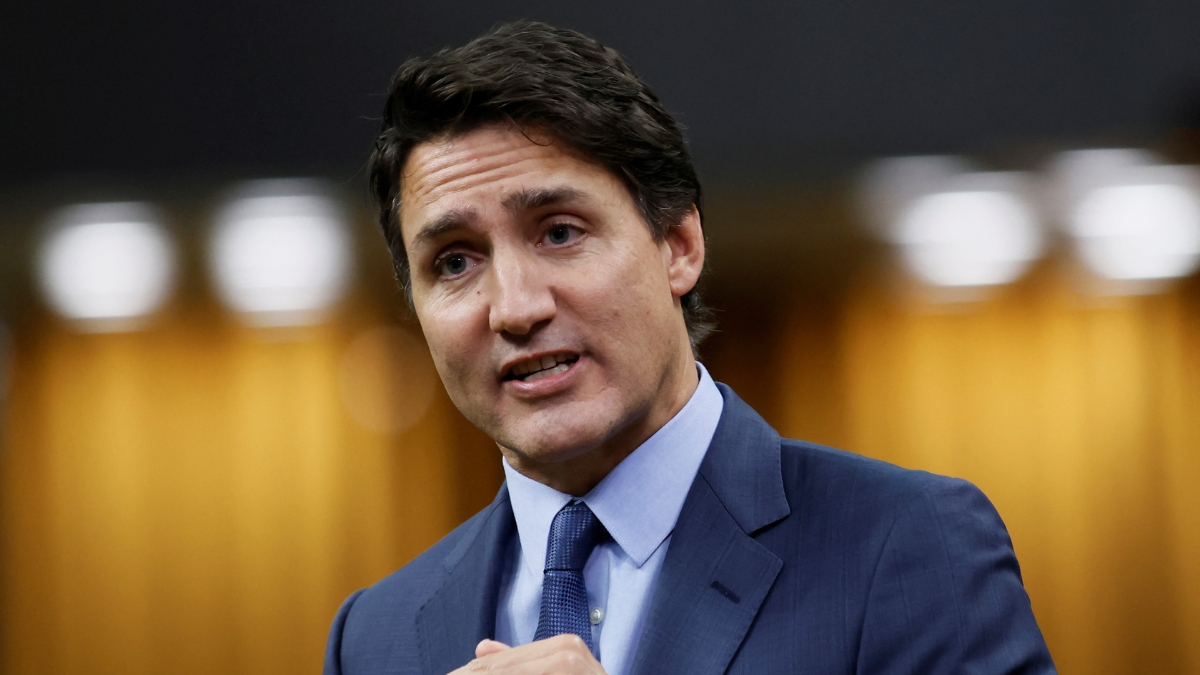Acknowledging the impact of Hardeep Singh Nijjar’s killing on India-Canada ties, Canadian Prime Minister Justin Trudeau has said that while the two countries should “get along”, he cannot ignore the “problem” created with the killing of the Khalistani separatist on Canadian soil in June last year.
According to a Hindustan Times report, in an interview to Punjabi-language media in Toronto, Trudeau said, “Canada and India are the world’s two largest democracies, us by size, them by population. And we should be able to get along.”
However, he said Nijjar’s killing has seen a downward spiral in the relations between the two countries.
“It’s a problem in our relations with India because we cannot ignore that,” said Trudeau.
The interview, which took place on Sunday, was aired by the network Y Media on Wednesday evening.
His comments came after attending a Khalsa Day event in Toronto where there was a significant presence of pro-Khalistan elements, with anti-India banners and separatist flags and he was greeted with secessionist chants at he entered and exited the podium, reported Hindustan Times.
On supporting Khalistan, Trudeau made it clear that Ottawa will not come in the way if things are done peacefully.
“You get to support whatever beliefs you have, that’s part of what makes Canada a free country,” he said.
Impact Shorts
More ShortsRegarding India’s concerns over the Vaisakhi parade, Trudeau said Canada’s commitment to addressing such concerns seriously but emphasised that political protests are allowed within the country.
“Our job is not to crack down on political protest, that’s something we allow in Canada," he added.
“We will always follow up when our fellow countries have expressed concerns about behaviour, about violence, about criminality. We take them seriously. What we will not do, however, is go after people because they’re saying things that the Indian government doesn’t like, things that the Indian government disagrees with,” he added.
Trudeau asserted that Canada “always stood very strongly against terrorism, against violence, against intimidation”.
Describing India as an “important partner”, Trudeau said when it comes to people-to-people and business relations as well as cooperation on international issues like climate change, both the countries have been on the same page.
However, Nijjar murder will continue to be a sticking point till the matter is resolved to Canada’s satisfaction.
“We want to get through this challenging situation but there needs to be accountability,” he added.
The ties between India and Canada came under severe strain following following Trudeau’s remarks in the House of Commons regarding “credible allegations” of potential links between Indian agents and Nijjar’s killing.
After Trudeau’s charge, India had rejected the claims and termed the allegations as “absurd and motivated.”
Since then Ottawa and New Delhi announced tit-for-tat expulsions of diplomats in the wake of Trudeau’s allegation.
India also temporarily suspended the issuance of visas to Canadian citizens and asked Ottawa to downsize its diplomatic presence in the country to ensure parity. Canada had withdrawn 41 diplomats and their family members from India.
With inputs from agencies


)

)
)
)
)
)
)
)
)



